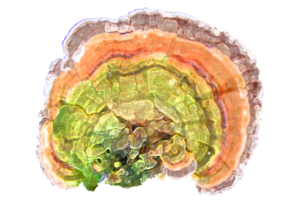Hailing Lu, Yi Yang, Ekram Gad, Cynthia A. Wenner, Amy Chang, Emily R. Larson, Yushe Dang, Mark Martzen, Leanna J. Standish, Mary L. Disis
Abstract
Purpose
Polysaccharide Krestin (PSK) is a mushroom extract that has been long used in Asia and recently in Western countries as a treatment for cancer due to its presumed immune potentiating effects. Although there have been reports of clinical responses after patients have ingested PSK, the mechanism of action of the agent remains undefined. The current study was undertaken to investigate the mechanism of the anti-tumor actions of PSK.
Experimental Design
The effect of PSK was first evaluated in vitro using splenocytes from neu transgenic mice and TLR2 knockout (TLR2−/−) mice. Then the immunostimualtory and anti-tumor effect of PSK was determined using tumor-bearing neu transgenic mice, TLR2−/− and wild type C57BL/6 mice.
Results
We demonstrate that PSK is a selective TLR2 agonist, and the activation of dendritic cells (DC) and T cells by PSK is dependent on TLR2. Oral administration of PSK in neu transgenic mice significantly inhibits breast cancer growth. Selective depletion of specific cell populations suggests that the anti-tumor effect of PSK is dependent on both CD8+ T cell and NK cells, but not CD4+ T cells. PSK does not inhibit tumor growth in TLR2−/− mice suggesting the anti-tumor effect is mediated by TLR2.
Conclusion
These results demonstrate that PSK, a natural product commonly used for the treatment of cancer, is a specific TLR2 agonist and has potent anti-tumor effects via stimulation of both innate and adaptive immune pathways.
Reference:
Clin Cancer Res. 2011 Jan 1; 17(1): 67–76

